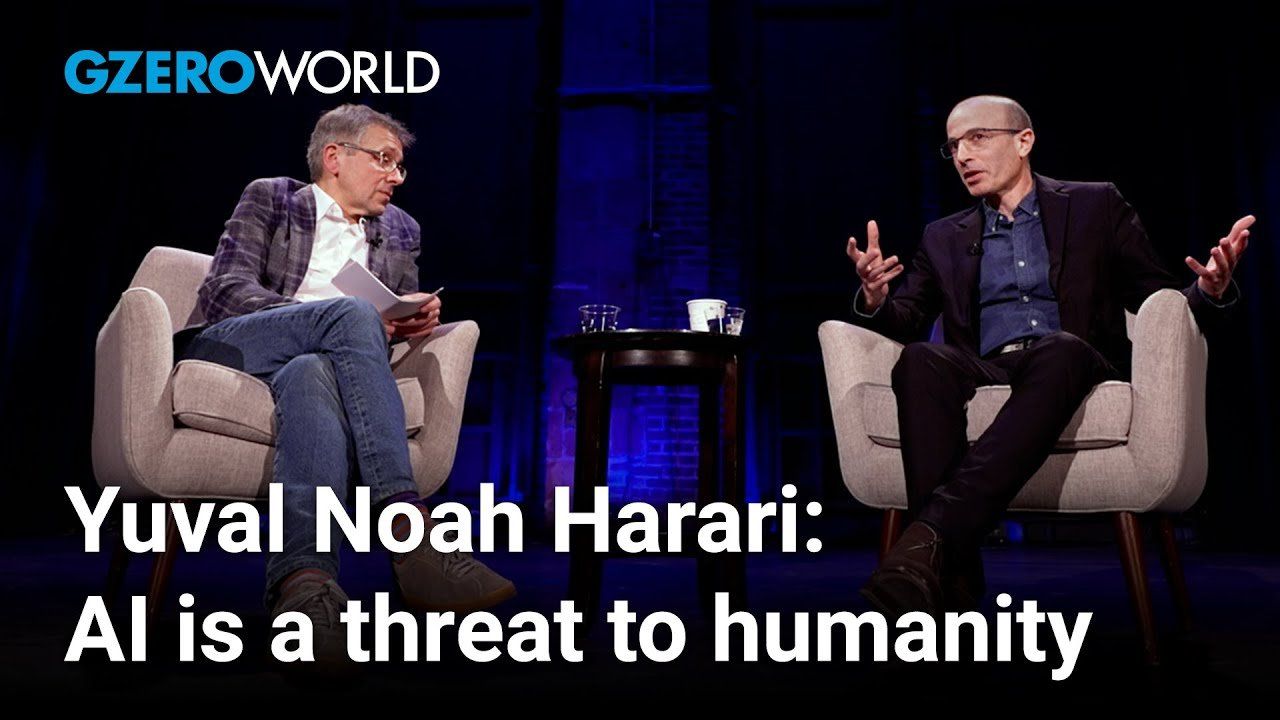GZERO World Clips
Yuval Noah Harari: AI is a “social weapon of mass destruction” to humanity

Yuval Noah Harari: AI is a “social weapon of mass destruction” to humanity | GZERO World

In a wide-ranging conversation with Ian Bremmer, filmed live at the historic 92nd Street Y in NYC, bestselling author Yuval Noah Harari delves deep into the profound shifts AI is creating in geopolitical power dynamics, narrative control, and the future of humanity.
Highlighting AI's unparalleled capacity to make autonomous decisions and generate original content, Harari underscores the rapid pace at which humans are ceding control over both power and stories to machines. "AI is the first technology in history that can take power away from us,” Harari tells Bremmer.
The discussion also touches on AI's impact on democracy and personal relationships, with Harari emphasizing AI's infiltration into our conversations and its burgeoning ability to simulate intimacy. This, he warns, could "destroy trust between people and destroy the ability to have a conversation," thereby unraveling the fabric of democracy itself. Harari chillingly refers to this potential outcome as "a social weapon of mass destruction." And it’s scaring dictators as much as democratic leaders. “Dictators,” Harari reminds us, “they have problems too.”
Harari's insights into AI's impact on democracy, intimacy, and social cohesion offer a stark vision of the challenges and transformations lying ahead. "The most sophisticated information technology in history, and people can no longer talk with each other?"
Walmart is investing $350 billion in US manufacturing. Over two-thirds of the products Walmart buys are made, grown, or assembled in America, like healthy dried fruit from The Ugly Co. The sustainable fruit is sourced directly from fourth-generation farmers in Farmersville, California, and delivered to your neighborhood Walmart shelves. Discover how Walmart's investment is supporting communities and fueling jobs across the nation.
President Trump’s second term has rapidly reshaped global politics, with the US wielding power more aggressively, targeting weaker countries and even allies, Stephen Walt explains on GZERO World.
Ian Bremmer breaks down a sudden and serious transatlantic crisis: President Trump’s insistence that the United States must have sovereignty over Greenland.
It’s been a year since President Trump returned to office. How has the world changed? Stephen Walt joins Ian Bremmer on GZERO World.